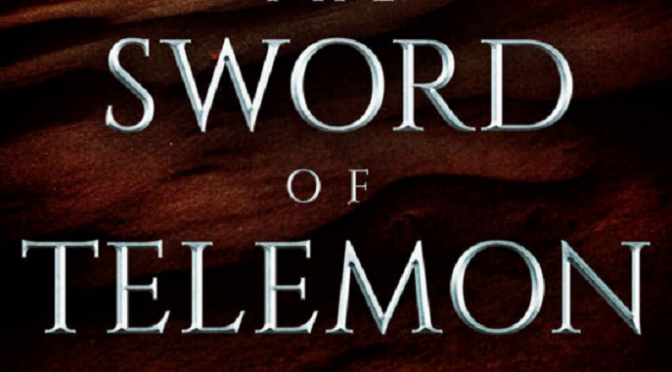Over the past few weeks, we’ve had the privilege of running a few promotions for Murray lee Eiland Jr., the author of the Orfeo Saga books. Between The Sword of Telemon, The Emperor of Babylon and Zurga’s Fire, we’ve shown you more than enough to whet your appetite on Mythological Fantasy.
We were given one more opportunity, though, this time to interview the man himself. Read our interview below to see what makes Eiland Jr. tick.
Tellest: How did you conceive the idea for the Orfeo Saga?
Murray Lee Eiland Jr.: I have been a huge fan of both Tolkien and CS Lewis. I think it is important for every age to have myths and stories that have characters facing problems and solving them in keeping with the moral values of the era. I started writing many years ago, and just now have gotten the courage to put in in print. I have always been uncomfortable about magic used in stories. While magic can be great fun to read, I wanted to write stories that revolved around “clever plans” rather than the supernatural. As a psychiatrist I also understand that everyone needs a narrative that makes their life worthwhile. You can call it personal mythology if you want. I find that very successful people, the ones who would otherwise deny that they have anything like a personal mythology, really do have a grand narrative about what they want out of life. I know for myself I have always had a very active imagination. I have channeled that into novels.
T: It seems that the Orfeo Saga keeps growing. Please tell us there are no signs of stopping!
MLE: There are now 20 books in the saga, but I am not sure if all of them will be published. Some might be melded together, others might not fit into the series as it is developing. I edit my work all the time. Particularly when books are in a series the author (or a careful reader) can note that it would be better for a character to do something differently. It really requires being immersed in a fictional world, and remaining true to the vision that the character has. I have to admit that even if I am not writing directly, I enjoy thinking about my characters.
T: Twenty books… Just reading that made my heart drop in the best of ways. I’m sure your readership will be ecstatic to hear about that. After your first book in the saga was published, and you saw that people were enjoying the story you crafted, did you begin making your way back to the series? Or did you never let it go in the first place?
MLE: I have to admit that since people are interested in reading my fiction I have returned to it. I did let go, and I only realize it looking back. It is rather easy to simply re-read books you have written, and imagine what would happen if they were published. At a certain point, I just decided to get on with it. My upcoming 8 0 birthday was so scary it helped me. I think that the biggest fear any author has is that no one will read their books. It can even happen to the best authors, and it might not even relate to how good the book is. Now I am really pushing myself.
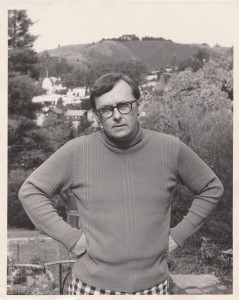
T: Beyond the books that you’ve written, how far can you see your various series going? Does Orfeo continue to surprise you with new adventures?
MLE: I think that the Orfeo series has a number of characters that can have their own stories. It can be difficult to establish the fictional world a particular character lives in. I think it takes several books. I have several spin off characters in mind for the future. This includes young alchemists in the footsteps of Zurga, as well as strong women like Clarice. These other characters have the opportunity of occupying the same fictional world, without having the need to re-tread the introductory period. I think that if I were to expand the series, it would not be following Orfeo. I like being surprised, not treading over the same stuff.
That being said, I have written plenty of Orfeo books to be published. I think they all have something interesting about them. They re-visit great empires such as Babylon, and old enemies from the steppes. Problems in Egypt also deserve attention. I have written what I think is a rather funny take on the Trojan War. I also have several characters moving further to the east. Because of the many trips I made to Iran, in many ways I am happiest when talking about eastern cultures. I really wanted to explore the idea that ancient civilizations were in contact with each other. Traditional history just follows contact via conflict. However, I think that ancient cultures shared ideas as well as material culture, and a wide swathe of the world was more or less connected. I think this is a far more interesting thing to explore than the more common “civilizations in conflict” narrative. Of course there were lots of conflicts too, but my reading of history suggests that there was always the ideal of peace that eventually prevailed. This idea is so important (for any era) that I cannot imagine my heroes fighting for anything else.
T: It’s called the Orfeo Saga, but who would you say is your favorite character?
MLE: My first drafts of the first book are now forty years old. I have really taken it seriously only in the last ten or fifteen years. At first I really liked the character of Orfeo. The name Orfeo-like other names in the series-has some historical resonance. The names were chosen because they are easily remembered by readers. I did not take any names from Linear B tablets. I thought that to trace Orfeo’s development through life would make a great series. It is set during the Greek Bronze Age (circa 1600 BC). I really developed the other characters, such as his wife Clarice, his slightly younger friend Daryush, and his mentor Zurga, in following novels. I have to admit when I first conceived of the character Zurga I was thinking he would be something like a wizard. Then I realized that he should not be a magician at all, and that he should he a keen observer of nature (an early alchemist might be the best description). Zurga has travelled around so much he also knows many of the power-brokers of the era, and uses his personal connections to advance his vision. Zurga sees Orfeo, Clarice, and Daryush as people who can help bring peace and stability to the region. This will not only help his people, but also remain true to his moral values. Now as an old man myself I have to admit having a fondness for Zurga. When I started the series so many years ago no one wanted to read about women heroes. I made Clarice very much a hero, and in some ways she is more versatile than Orfeo. Clarice is just like the others, she is a leader. Not just good at fighting, she is inspiring. I know that a lot of readers like Clarice.
T: I’ve been following the Orfeo Saga on Facebook, and yes, you can definitely tell that she’s a fan favorite. What kind of things inspired her development, especially in a time that female heroes weren’t all that obvious?
MLE: My wife has been tolerant of my writing, and very competent in her career. I was thinking about gender roles in Bronze Age Greece. I think that they were quite different from a rather traditional conception (well known from the 1950s in America). There were plenty of women who were real warriors and leaders. Athena is a good example of a deity who no doubt reflected reality. Settled societies after long periods of stability can afford to have cloistered women. I think in an era of warring tribes a society that can mobilize everyone has great advantage. Look at the Sarmatians in the Russian steppes of the 6th century BC-4th century AD. According to some estimates, about 20% of Sarmatian “warrior graves” on the lower Don and lower Volga contained women dressed for battle. Tribes like this were no doubt the inspiration for the “myths” about the Amazons. It would not surprise me if many other tribes adopted similar patterns of organization.
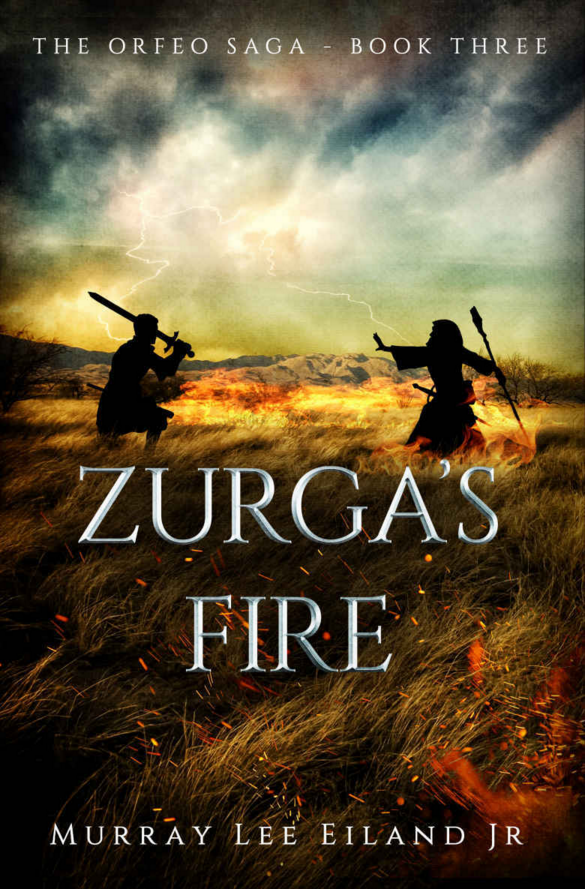
T: It’s intriguing to see that the boundaries of the world you present in Orfeo are expanding. In the newest book, you have your characters venture to the New World. Was that an exciting journey for you to make?
MLE: I try to make every book different. Orfeo 4 had some humor. There are some wonderful writers who do historical fiction from a humorous perspective. Perhaps my favorite is George MacDonald Fraser and his Flashman series. Not only does he present great characters, but he has a vast historical narrative he can interact with. It is the same for the inimitable Blackadder series. I do not think I could do anything as detailed as that in the Bronze Age. There are very limited historical sources. For instance, it seems clear that there was some contact between the Old and New worlds. Since archaeology is not certain, why not take on the issue? Later in the same book I deal with the rise of Sparta. I will not mention names, but several years ago my son gave a draft of the book to a well-known archaeologist. They noted, correctly, that there was no proven contact between Old and New Worlds before the Vikings. I see no reason why contact could not have occurred several times, starting much earlier. The expert also heavily criticized the last half of the book dealing with the rise of Sparta, noting that there was nothing to suggest such an early date. I recently read with great interest in the Guardian (25 August 2015) that there was a palace discovered there dated to the 17th century BC. I am not at all surprised by this new find. I never set out to write history, and I hope I do not write things that are totally unbelievable either. I think my books are best read with an open mind that is open to a little humor here and there, particularly Orfeo 4.
T: I think that we’re getting to a place in our society where people are aware that there are things that are just beneath the surface. These kind of alternative (or what-if) histories are very appealing to today’s audiences.
MLE: I really like to read alternative histories. It is very interesting to speculate “what if” and then go on to probe deeper into history to know “what really happened.” We all know that history is usually written from a perspective, and that over time a perspective becomes established. Fashions change, and historical “reality” changes with it. Knowing for certain what happened in history therefore requires knowing the biases of historians. I think fiction, and alternative histories, are a great way to understand what your own biases are.
T: Your characters have had their fair share of adventures. They’re varied enough to feel fresh every time, as well. Is it you that decide where they are going, or do they happen to surprise you?
MLE: I have some idea where the characters are going. I have to do some research with historical maps to get an idea of what is plausible and what would be too much. I just try to let the story flow, and if it does not, I slow down and do some general historical and archaeological reading. I try to be careful about what historical fiction I read, as I do not simply want to copy what is already out there. There are some moments of insight when, usually after thinking about a problem for some time, an idea just presents itself. I can say that by the end of a novel I am surprised many times at how things turn out.
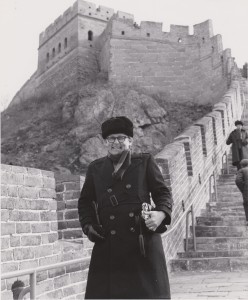
T: You also have experience writing a hard-boiled mystery series called The Bart Northcote Series, as well as some non-fiction books about rugs. Do you find it challenging to jump between genres?
MLE: Interestingly enough, the rug books helped me write the Orfeo Saga. I travelled extensively to research the rug books, and I deepened my appreciation of ancient cultures. There is a clear link between those two interests. The Bart Northcote Series deals with a private investigator. While he is based in Los Angles (where I spent several years) Bart gets around. The first book of the Bart series deals with art forgery. I came to know about forgers and unscrupulous dealers through sad experience. I and my wife ran a rug store for years, and my brother is still in the business.
In many ways I found it liberating to jump between genres. The characters are so different that there is no overlap. The thing I feared was getting stale.
T: Your son writes as well. Has he been interested in the fiction that you write as well, or does he stick primarily to textiles and archaeology?
MLE: I am not surprised that my son became an archaeologist and is also interested in textiles. From an early age I read him myths and sagas, and he quickly picked up Tolkien and moved on through Graves. I think he is mostly busy with writing non-fiction. He enjoys reading the Orfeo Saga, and is ready to offer advice. He has written some historical fiction, but he has published nothing in that genre so far. I think it is a better idea to spend time perfecting the craft rather than rushing to publish. I do hope that he publishes some novels before he turns 79 like his father! I always emphasize that it is great to write for fun, but it is only when you publish something and have people read and comment on it that you can really test your characters and stories in the real world. Nothing improves your writing more than writing for an audience.
T: Has your psychiatric background affected the way you look at your characters at all?
MLE: Many of psychiatrists say that their professional training has really deepened their work in other fields. I think the danger of having a long period of required training is that it can make you think that you have a unique story to tell. The question is, do you really have a unique story, and can you really write it so that others enjoy it? I can say conclusively that I do not think my long years of professional training and practice helped the mechanics of my writing. Since every author writes from what they know, I am sure my profession influenced how I conceived of characters. I think being able to give characters life is such a unique skill that you just have to do that, over and over. I do not want to say how long I have been writing fiction, but let us just say trees should not like me very much. I wrote lots of fiction that has been unpublished for good reasons. Now I do not feel as guilty since I can be environmentally friendly using computers. I will also say that while I enjoyed helping people as a doctor, I would have given anything to have started out as a writer.
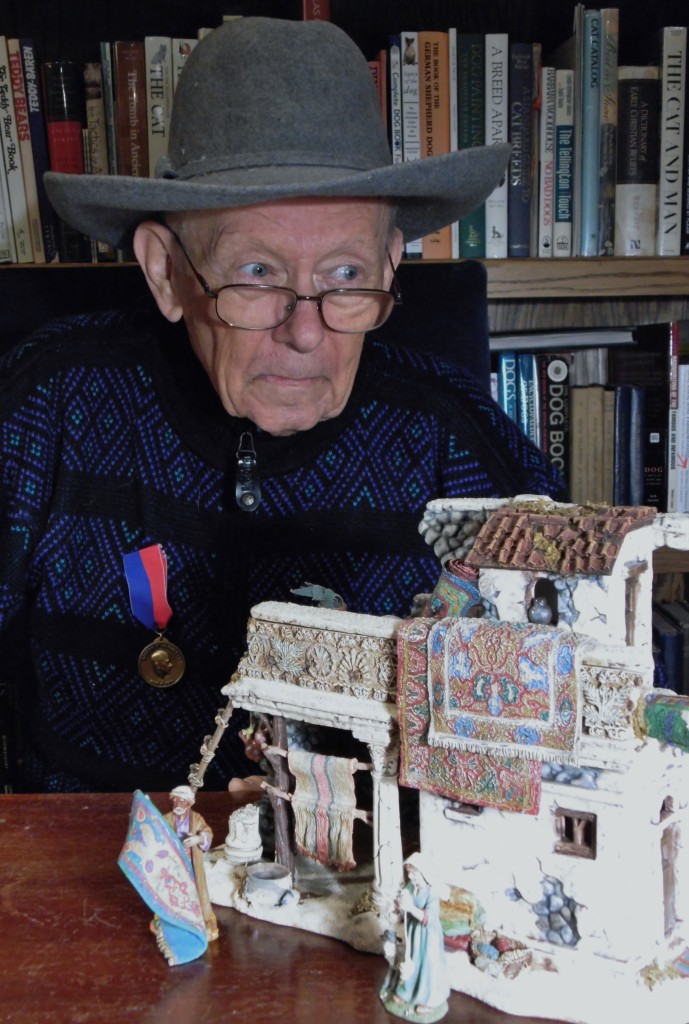
T: That is a beautiful sentiment, and I hope that you feel that you are appreciated for your work!
MLE: I think that doctors are in an interesting place. While many people are appreciative of what doctors do, particularly if they work for free, there are others who mis-trust the medical profession. While some of this is warranted, at other times it is irrational. I think that authors are in a unique position. People do not read authors they do not like, and tend to have no strong option about them. Well liked authors are highly esteemed, and their characters can live for hundreds of years. As an author it is possible to have a positive effect generations down the line. I am still amazed how I can pick up an old book and it is like I have a direct connection with the author. I hope that I can leave a legacy like that!
It was a wonderful experience interviewing Mr. Eiland Jr. If you have any interest in his incredible work, do give The Sword of Telemon a gander. It is a great opening to an expansive series that the author spent a lot of time on. His labors show, and he did a great job!
If you’re the creator of fantasy worlds and you would like to be interviewed for your work, contact us via the link in the menu bar.
Michael DeAngelo
Latest posts by Michael DeAngelo (see all)
- Fantasy Promo – Quinine - July 25, 2024
- Sigil Art – Grim’s Hold - July 24, 2024
- Fantasy Promo – Light the Shadows (Under Elfhame’s Stars) - July 24, 2024
